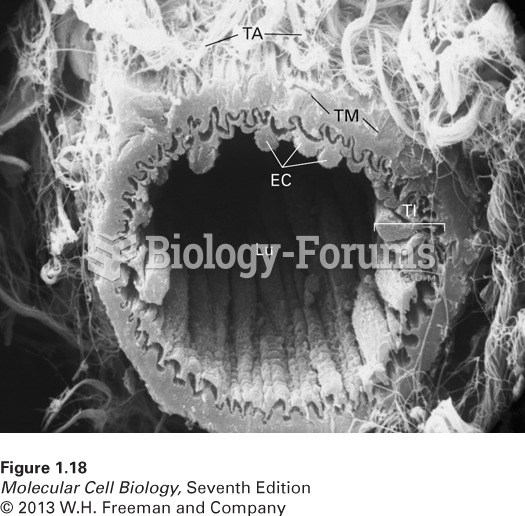|
|
|
In most climates, 8 to 10 glasses of water per day is recommended for adults. The best indicator for adequate fluid intake is frequent, clear urination.
Although puberty usually occurs in the early teenage years, the world's youngest parents were two Chinese children who had their first baby when they were 8 and 9 years of age.
After a vasectomy, it takes about 12 ejaculations to clear out sperm that were already beyond the blocked area.
Pink eye is a term that refers to conjunctivitis, which is inflammation of the thin, clear membrane (conjunctiva) over the white part of the eye (sclera). It may be triggered by a virus, bacteria, or foreign body in the eye. Antibiotic eye drops alleviate bacterial conjunctivitis, and antihistamine allergy pills or eye drops help control allergic conjunctivitis symptoms.
About 80% of major fungal systemic infections are due to Candida albicans. Another form, Candida peritonitis, occurs most often in postoperative patients. A rare disease, Candida meningitis, may follow leukemia, kidney transplant, other immunosuppressed factors, or when suffering from Candida septicemia.
 Vertebral compression Fractures of the spine (vertebra) can cause severe ”band-like” pain that radia
Vertebral compression Fractures of the spine (vertebra) can cause severe ”band-like” pain that radia
 Buddhist philosophy allows for the idea of reincarnation, as the self passes from body to body. The ...
Buddhist philosophy allows for the idea of reincarnation, as the self passes from body to body. The ...





